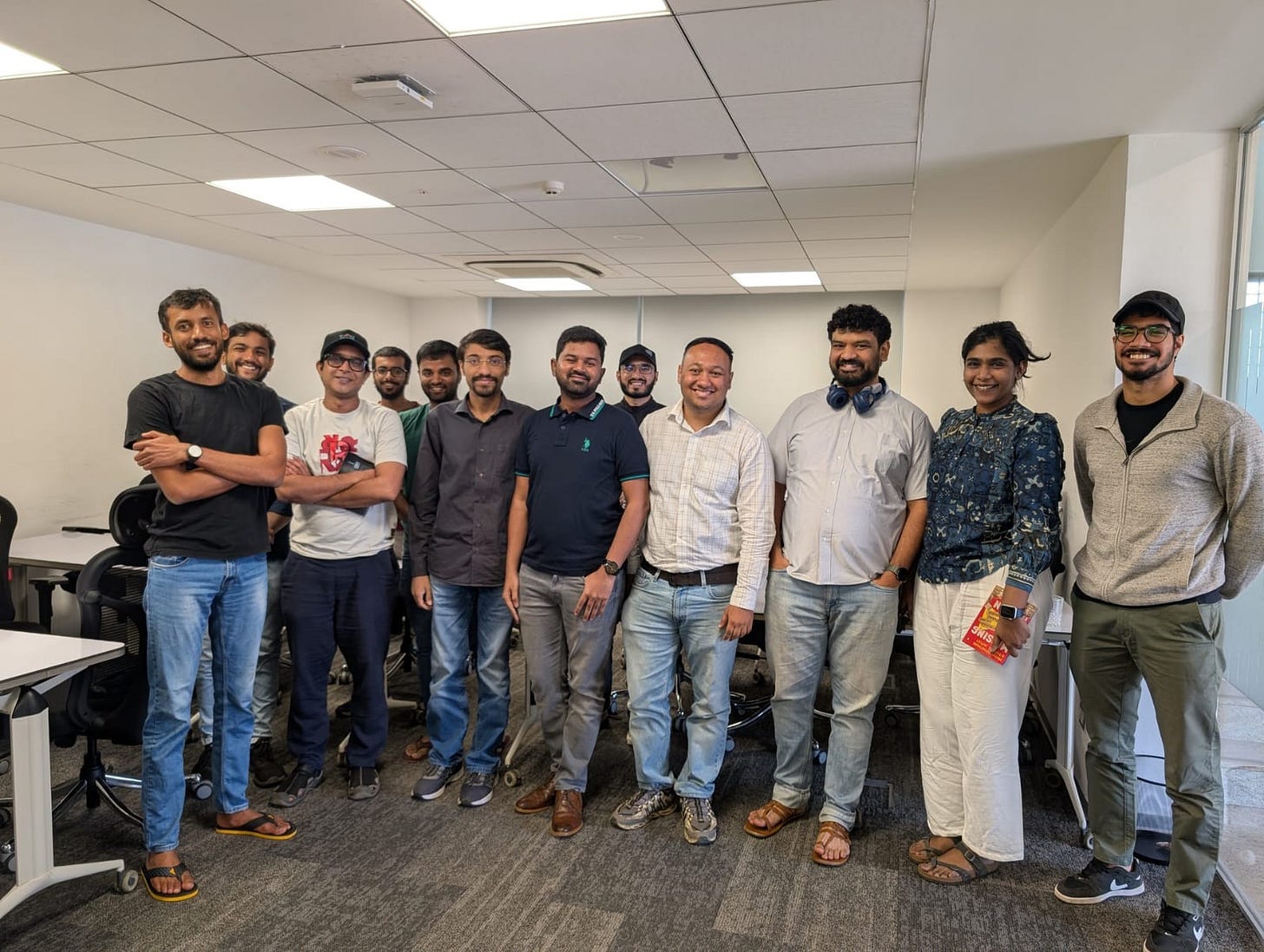We started the book club!
To tell you the truth, we were deeply cynical when we started the book club.
We began this project painfully aware of one thing: people don’t read. I’m not whining about some distant societal problem: I don’t like reading myself, on most days. Give me anything else that I can do: watch Netflix, scroll through some app, play a game on my computer — whatever — and I’ll put my book down. To read in the digital age is to sit in the world’s most delightful pastry shop, ignore all the beautiful sugary treats around you, and eat a bowl of tur daal.
Now, how do you get around this problem? How do you get people to read?
When we started, we were looking at the wrong place for answers. We were trying to make the tur daal look like a pastry. We considered throwing in all sorts of gimmicks — social discussion spaces, online chatrooms, breakfast walks, whatever. We were looking at books as a bitter pill that we had to help people swallow.
But that was the wrong answer, because we were ignoring a basic fact: books are fun. We just had to trust them.
The digital world might be a delightful pastry shop, but living in a pastry shop is terrible for you. You’re not meant to be smacked 24x7 with cocaine-like excitement from every damn bit of technology you encounter, even if all you’re doing is booking a bus ticket. We would never succeed at making books as addictive as Instagram, and even if we did — if we learnt some nifty psychological trick that manipulated you into reading — we’d end up frying your brain even more.
The answer was right before our nose: our job was to get people to step out of the pastry shop, and then eat their daal if they felt hungry.
Honestly, that’s when it all fell into place. We hacked off our complex plans and kept things simple: we set up a reading room. Anyone who sat there would have to read. That’s it. For anything else at all — even if you just wanted to check your Whatsapp — you’d have to step out. For those who didn’t know what to read, we brought along some of our favourite books. And we offered some filter coffee to help you power through. But that’s all we did.
It was powerful.
The first half an hour was clearly a slog. People began antsy and restless and distracted. They couldn’t get themselves to begin. They were looking around — at other people, at the wall, whatever — waiting for someone to squirt them with some pure dopamine. But that wasn’t what we were doing.
But eventually, because they had committed their morning to us and there was nothing else to do, people began to read. And as they read, they found that they wanted to read. The great authors started working their magic. Soon, there was pin drop silence. Everyone sat still, their faces buried in the pages of books they never knew they would start.
By the end, I think most people who turned up had a fantastic Saturday morning. They were gushing about the things they read, and why they cared about them. Our thesis had worked: there was still a magic to books, and it would still touch anyone who reached for them.
Going ahead, this is what we’ll double down on. We’ll keep it simple. We’ll give you a space, and let your favourite authors do the heavy-lifting. I know it doesn’t seem like a lot, but try joining us anyway. I promise it’ll be one of the best ways you can spend a weekend morning.
You can join the group here.



How is it different from library?
Pl share your book club recommendations, backed by in-house vote.